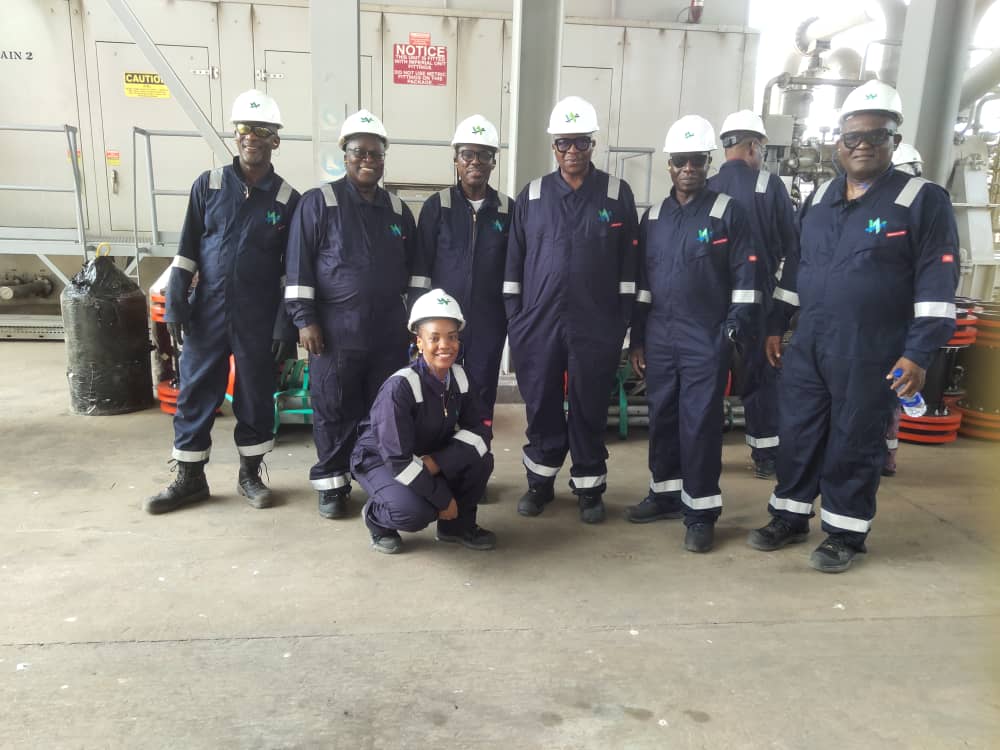The West African Gas Pipeline Company Limited (WAPCo), owner and operator of the West African Gas Pipeline (WAGP), said safety measures have been taken to ensure its pipeline repairs won’t cause any damage to environment in Nigeria and other host West African countries.
During the exercise, WAPCo anticipated only a minimal disruption to the activities of host communities within the vicinity of its facilities in Badagry, Lagos State, Nigeria and Aboadze, Ghana, as most of the activities will be offshore and confined within the premises of its facilities.
Giving further details while speaking in Lagos on Friday, General Manager (GM) Corporate Affairs, WAPCo, Dr Isaac Adjei Doku, said that as part of the maintenance process, WAPCo has engaged the Environmental Protection Agencies in the respective countries and has implemented a world class effluent management system at its facility in Takoradi, Ghana, where the company expects to receive some liquids and debris from the cleaning of the offshore pipeline.
Doku, further commended the governments of Nigeria, Benin, Ghana and Togo for their ongoing support, while also appreciating the maritime and regulatory authorities across these four countries, as well as its customers, shippers, gas off-takers, host communities, shareholders, and all other relevant stakeholders for their continued collaboration and contribution to the success of this exercise.
Meanwhile, he said Governments of Ghana, Togo and Benin Republic have taken critical steps to protect key power plants by ensuring their operations following alteration in gas supply from Nigeria.
WAPCo, which supplies gas to those countries, has commenced a scheduled major pipeline maintenance activities.
These activities include the pigging and the in-line inspection of the 569 km offshore pipeline infrastructure, from Ajido, Lagos State, Nigeria to Takoradi, Western Region, Ghana and replacement of critical subsea valves at Tema and Cotonou to enhance operational safety.
This maintenance project taking place between February 5 and March 2, 2025will necessitate the temporary suspension of specific services, including the reverse flow transportation of natural gas from Ghana’s Western Region to Tema in the east, as well as gas transportation services from Nigeria to Cotonou (Benin), Lomé (Togo), and Tema (Ghana). However, some gas transportation services from Nigeria to Takoradi in Ghana will continue during this period to ensure the successful execution of the pipeline cleaning and inspection activities.
Doku said, for instance in Togo, two plants, Konto Globa and Kekeli, may be affected during the maintenance period.
In Benin, the government was making preparations for the use of liquid especially in Thema, where Ghana has two key hubs.
Thema is about 1,000 megawatts but needed at least 650 megawatts for the stability of power in the country and for the whole grid in Ghana to be stabilized.
He said except that 650MW generation is maintained during the period the grid in Ghana can collapse.
“So at least the power plants that can use liquid fuels in Thema, the idea was for the government to get enough liquid fuel so that those plants can actually generate.” he added.
Doku, also spoke about contractual agreement for gas, as he sought regular payment from countries to sustain the company’s operations.
He raised concerns about gas price fluctuations but maintained that stakeholders should make sure they pay up so that at least the company can maintain the pipeline and keep flowing the gas for them.
The comprehensive cleaning and inspection exercise is a key regulatory requirement and aligns with industry best practices to ensure the safe and efficient operation of the West African Gas Pipeline (WAGP).
The cleaning and inspection, which encompasses the entire pipeline stretch from Itoki, Ogun State, Nigeria to Takoradi, Western Region Ghana is in two phases. The first phase, which was completed in December 2024, involved cleaning and inspecting the onshore section of the pipeline within Nigeria. The second phase which is scheduled to start on February 5, 2025, will focus on the offshore section of the WAGP.
WAPCo is mandated to conduct these inspections every five years (or on a risk-based schedule) as part of its commitment to maintaining the integrity of the WAGP and ensuring its safe and reliable operation across the West African region. WAPCo has actively engaged with key stakeholders to ensure the necessary alignment for the successful implementation of this project. WAPCo is grateful to the governments of Benin, Ghana, Nigeria, and Togo for their ongoing support.
“WAPCo is committed to maintaining the proactive stakeholder engagement processes established during the project’s preparation phase, during execution.
The company will continue to engage with relevant stakeholders on all matters to ensure the project’s safe execution and success,” said Auwal Ibrahim, WAPCo’s General Manager Operations & Maintenance.
